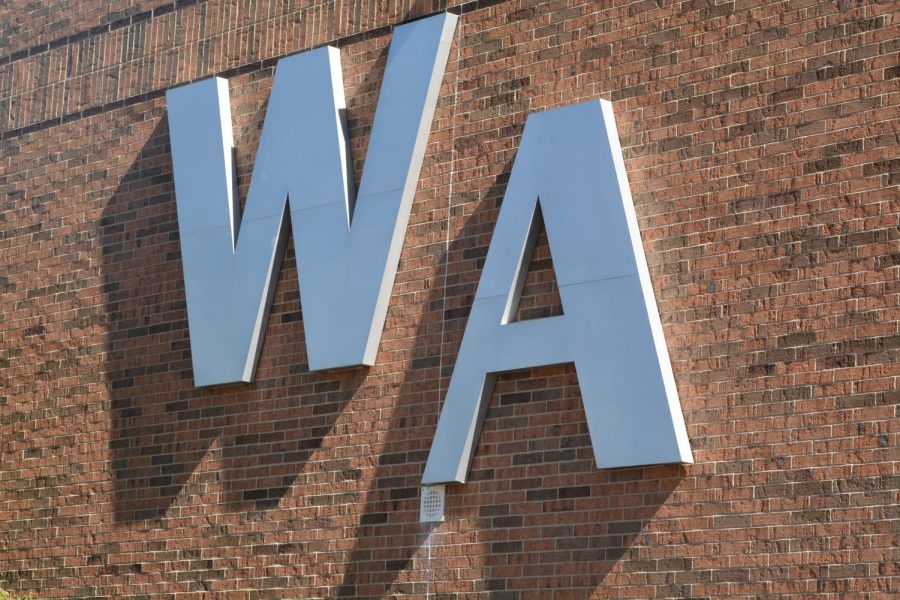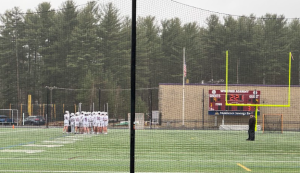Q&A: When a staff member is sent to the principal’s office
“WA” on the side of Westford Academy.
November 1, 2019
The WA Ghostwriter met with Principal James Antonelli to understand how the school handles staff discipline.
Q: How does the school handle staff discipline?
A: “[We take it] very, very seriously. We are bound to a process, and that process is called due process, and you are innocent until proven guilty…You certainly take each case individually. And again, you document things along the way. There is a teacher’s union, and union representation that deals with every single case. And so our teachers pay into a union that has specific union protections. And you work with the union to progressively discipline someone along the way […] So let’s say for instance an employee has been here for 25+ years. If that employee makes a mistake, the person is going to have to own up to that mistake. But one would hope that 25+ year career would hold some water, [and that maybe it] would put a letter in the person’s file, maybe it would be a stern discussion. Unless it was so egregious … that would be a situation [where] the Principal and/or Superintendent [would have to make the decision to let the employee go.]”
Q: What message do you think the lack of information coming from administration sends to those in the community?
A: “I think it sends a message of professionalism and due process. That there is a process, and if I was one to lack confidentiality about a scenario, I think that would send more of a message that I just let information leak out. That I’m giving them erroneous information. [And that] I’m sharing things without the appropriate steps.”
Q: Should a faculty member who’s done something questionable return to the school, how would the administration work to make students comfortable?
A: First of all, I’d have to acknowledge that there are going to be some parents that are uncomfortable, you know, having any [students] in that class…If a parent called me and said “I am not comfortable with my son or daughter being in that class,” I would have to respect that… And if there’s anything that gave me any indication [that] someone was not safe, I would move the student myself.”
Q: Would you say that for teachers outside of school grounds, that they are still held to the standards that are established at school?
A: “[I’ve had conversations with teachers where I’ve had to say] you know, you’re held to a higher standard. I mean, you’re dealing with students, you’re a role model, and so forth.”
Q: What would you say to someone who wants to know all the details about incidents? How would you go about telling them about the limits that confidentiality puts the administration under?
A: “Trust in the people that you put in positions. Trust. I don’t think I’ve had a career here of misleading people. I don’t think I’ve had a career of being an untrustworthy person[…]You have to trust, and not think that something is going to be shoved under the rug. There’s a process in place. And you may not get the full story [of the incident.] But there will be actions that will be taken in order to make sure that those kinds of situations don’t occur again […] I just want you to know that it’s difficult sometimes to be in my shoes in regards to what I can share and what I can’t share. And I wish I could do more, but my hands are kind of tied.”








